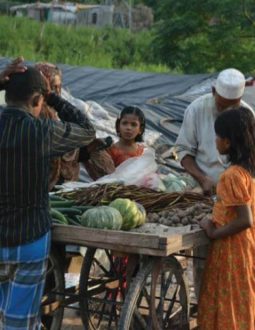
Tools to Assess and Mitigate GBV among Urban Refugees
PublishedNearly 60% of refugees live in cities, where they face significant risk of gender-based violence. Intersecting factors exacerbate their vulnerability, including marginalized employment, language, ethnicity, culture, disability, and sexual or gender identity. Perpetrators often assume, correctly, that urban refugees are unwilling or unable to seek police protection.
These tools, currently in pilot form, help practitioners to assess and respond to urban refugees’ risks of gender-based violence.

